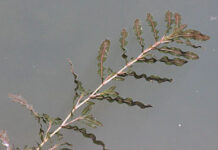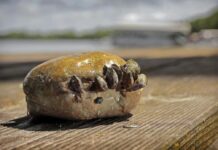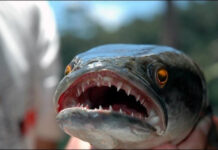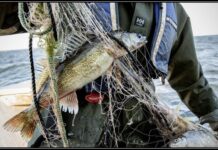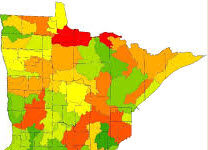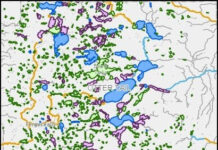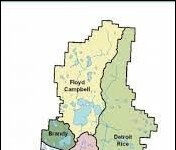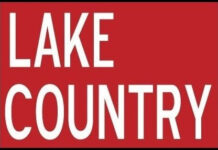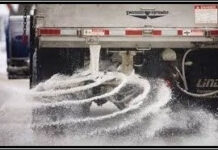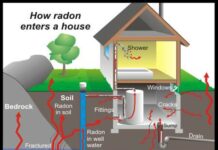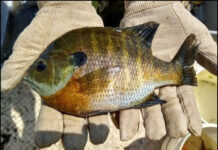By Darren Newville, District Manager EOT SWCD
I get it, we want our lake homes or cabins larger enough to accommodate all our family and friends. We want to have patios and decks that allow us to enjoy an unobstructed view of the lake. We want perfect, golf course like, manicured lawns with sandy beaches that allow the kids or grandkids access to the lake for swimming. We want the lake in front of our lots to be weed free so the kids can swim without anything touching their feet or legs. We want a perfectly clear lake free of any aquatic invasive species, and we need to have a garage or shed conveniently placed and large enough to store all the toys we use on the water. We want the lake to be abundant with desirable fish so that we can catch one on almost every cast. We want to live the perfect #Lake Life experience. Sounds great, but is it great for the lake?
I remember a trip to Lake Okoboji, one of Iowa’s great lakes, about 20 years ago. I lived in Southern Minnesota at that time. The wife, kids, and I were invited by some family friends to spend a Saturday afternoon on Lake Okoboji at their family cabin. Yes, I know, who lives in Minnesota and goes to Iowa to spend time on the lake? We went and had a great time. After a few hours of swimming from the boat and just hanging out, we did the slow tour just putting around the lake looking at the various homes and landscaped shoreline properties. That’s when I got the question, “What do you think a shoreline property should look like? Do you like the nicely manicured lawn that is mowed right to the water’s edge or do you like the more natural shoreline?”
Over the years I have often thought about that question I got some 20 years ago and try to relate that to how I would want a shoreline property to look if I owned one. Working in the soil and water conservation world for nearly 30 years and talking with a lot of lakeshore owners about different conservation issues, I would ask a different question. The question I would like every shoreline property owner to ask is “What can/should I do to mitigate the negative impacts from the development of my property to help protect or improve the water quality and the fish and wildlife habitat of the lake that my property is on?
There is a lot think about in that question. First, it acknowledges that by developing near the lake we are having a negative impact on the water quality and habitat of the lake. Second, it assumes that having good water quality is important to us, and finally it suggests that as property owners we can and should be doing something to mitigate the negative impacts we have created.
We are fortunate here in Otter Tail County. With only a few exceptions our lakes currently meet the water quality standards that have been set by the State for the type of lakes we have. However, that can change very quickly. There have been a lot of studies over the years on what affects the water quality of our lakes. All the studies agree that once the watershed of a lake has about 10% of its watershed developed, we start to see a dramatic decline in the water quality of that lake. When 25% of the watershed is developed the water quality of that lake will likely not meet water quality standards and be considered impaired.
We have over 1,000 lakes in Otter Tail County, all of them are uniquely different. Although, they are the same in the sense that with only a few exceptions most have been ringed with lake homes and cabins. A lot of these lakes are now starting to see the second and third tier of land around them be developed with more homes, large garages, and huge storage sheds. In most cases the natural vegetation has removed, and manicured lawns have been created so that the people who love their lake can enjoy a wonderful lake view and gain access to the water. With just about every lot being pushed to the limit of having 25% of the lot covered with impervious surfaces. Are we loving our lakes to death to live the lake life?
Aldo Leopold said “We abuse land because we see it as a commodity belonging to us. When we see land as a community to which we belong, we may begin to use it with love and respect.” How do you see your property? Is it a commodity that belongs to you, or do you view it as part of the watershed community to which it belongs?
As you are living the #Lake Life this summer, sitting on your deck, patio, or dock enjoying a beautiful sunset, or just putting around the lake on your boat or pontoon, I’d like you to ask yourself a question? What can you do on your property to show some love and respect for the ecological community that your property is a part of to help make sure the lake you love is there and in good health for future generations?
Darren Newville District Manager EOT SWCD

